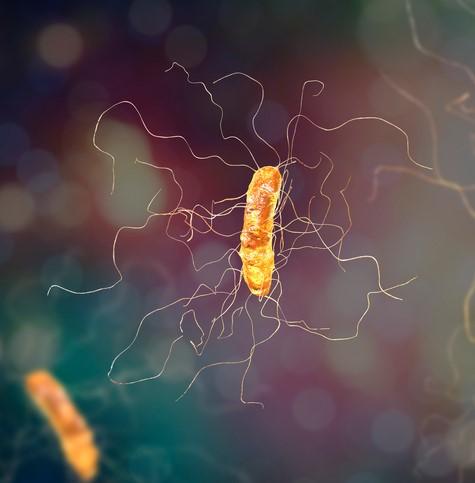An investigational antibiotic developed for treating Clostridioides difficile infection (CDI) did not meet superiority for sustained clinical response (SCR) in a randomized clinical trial but significantly reduced CDI recurrence and preserved microbiome diversity compared with vancomycin, researchers reported today in Clinical Infectious Diseases.

For the trial, which was conducted at 157 sites in 26 countries, adults with CDI were randomized 1:1 to receive 10 days of ridinilazole—a narrow-spectrum antibiotic with targeted activity against C difficile—or 10 days of vancomycin. The primary endpoint was SCR, defined as clinical response and no recurrent CDI (rCDI) through 30 days after end of treatment, in the modified intention-to-treat (mITT) population. Secondary endpoints included rCDI and change in relative abundance of microbiome-derived secondary bile acids (SBAs).
53% reduction in rCDI
Ridinilazole and vancomycin achieved an SCR of 70% and 73%, respectively, for an absolute treatment difference of 2.2% (95% confidence interval [CI], –4.2% to 8.6%), which did not meet the superiority criteria. But ridinilazole resulted in a relative 53% reduction in the rCDI rate compared with vancomycin (8.1% in the ridinilazole group vs 17.3% in the vancomycin group; absolute treatment difference, –9.2%), with subgroup analyses showing a consistent benefit for ridinilazole in high-risk groups.
Ridinilazole also increased microbiome diversity and SBAs and did not increase the resistome, while vancomycin worsened CDI-associated dysbiosis, reduced SBAs, and increased the resistome. Adverse events were similar for both treatment groups (47.1% for ridinilazole vs 47.2% for vancomycin), with the majority considered mild to moderate in severity, and adverse events leading to discontinuation of the study drug were lower in the ridinilazole group (0.8%) than in the vancomycin group (2.9%).
Trial investigators say the reduction in CDI recurrence is likely related to ridinilazole's microbiome-sparing specificity, which has been demonstrated in previous studies.
"The observed reduction in rCDI is supportive of the mechanism of action of this highly selective antibiotic that has a minimal impact on the human microbiome," they wrote.

















